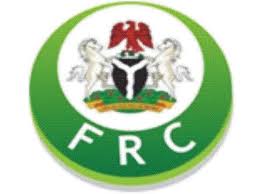As with global standards, the Federal Government set up the Financial Reporting Council of Nigeria in 2011. Established under Act 6, 2011, its mandate is to protect the investor and stakeholder interest, give guidance on issues relating to financial reporting and corporate governance, ensure accuracy and reliability of financial reports and harmonize activities of relevant professional and regulatory bodies. It also has the mandate to promote the highest standard among auditors and other professionals engaged in the financial reporting process. These among other duties explain the purpose of the FRCN.
One thing that the FRCN is clearly not empowered to do is play the role of a ‘tax collector’ or levy financial and business entities with impunity. When these things happen, it is expedient that it must be highlighted and issues are set clear. This piece reflects the mood of practitioners as the harsh reality has necessitated the need to react swiftly lest we find ourselves in the abyss, having been hanging on its precipice a long time.
The nation has been having a running battle with multiple taxation and over-lapping regulatory oversight that the FRCN’s impunity is another unwanted burden that should and must be avoided at all cost. If unchecked, the consequences could be grave for the economy in the long term. Foreign direct investments could plummet and retarded growth of indigenous companies could happen; making it negate one of its core mandates.
The UK-FRC, unlike FRCN, works to establish whether or not a financial reporting breach has occurred, the courts are responsible for determining sanctions. The FRCN on its part has chosen to copy some aspects of the UK code but not copy those that will require it to properly engage with the market that it regulates or refer matters that should be addressed or interpreted to the courts.
FRCN reviews and appeal process is not independent or segregated as expected but sits over proceedings in an appeal. The UK-FRC review procedure builds in segregation of duties and checks by independent reviewers.
FRCN is shifting from its primary focus on public interest enterprises to focus on money making. It seeks to extend its universe of compulsory levies to all entities in the private sector. The expansionist mindset was contested by Eko Hotels when the agency levied and threatened to sanction the company for not registering and paying annual dues to it. The court ruled that Section 77 of the FRCN Act excluded private companies from the entities subject to regulatory powers of the FRCN.
The institution has become an exorbitant tax collector, charging registration fees up to N219, 000 per professional and annual dues of N5, 000 each. Unlike the UK, whose financial regulator asks for voluntary levies from regulated entities that pay according to their market capitalization.
FRCN has reviewed its penalties up to 5,000%. These penalties are exorbitant, even exceeding the constitutional limits approved by the National Assembly. The agency showed its complete disregard of the law in requiring that penalty must be paid within 14 days, failing which an additional penalty of 0.1% shall accrue daily. This is despite the fact that Section 64 para (1) of the FRCN Act states that regulated entities are only liable to fines upon conviction by a court of competent jurisdiction.
If the FRCN is meant to achieve a unified regulator that will reshape the national risk management system, sanction misbehavior of the management of public interest entities then FRCN has not lived up to its expectations. The FRCN as a matter of fact, should focus on developments of standards, codes and guidelines that will support the fair presentation of financial statements by stewards of business enterprises, provision of guidance, and engage stakeholders to encourage compliance with the codes and standards
FRCN leadership should be transparent and should set the tone by publishing its own annual reports from 2011 to 2014 as is required by section 38 of the FRC Act and as it demands from regulated entities. All FRCs across the globe publish their reports on their websites
Since FRCN believes strongly in rotation and “fresh look”, it is past due for its Executive Secretary to step aside having dominated corporate reporting from serving as Technical Director of the defunct Nigerian Accounting Standards Boards, through to its CEO to Executive Secretary of FRCN for over 10 years.
The national assembly should urgently establish a committee to review the activities of the FRCN, its governance systems, recent pronouncements and planned enactments are in line with the Act establishing the FRCN. It will also be necessary for the national assembly to review the FRC Act itself to determine whether the powers being exercised by FRCN are appropriate.

